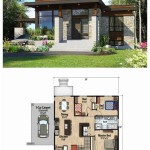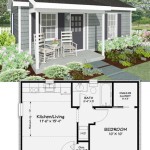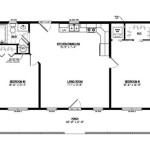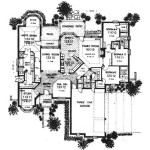How To Calculate the Cost Of Building a House
Calculating the cost of building a house is a complex process involving numerous variables and careful estimations. A comprehensive understanding of these factors is crucial for realistic budgeting and successful project completion. Accurate cost projections allow informed decision-making throughout the construction process, minimizing financial surprises and maximizing the value of the investment.
This article outlines the key considerations and methodologies involved in calculating the total cost of building a house, providing a structured approach to ensure accurate budgeting. The factors influencing the total cost can be broadly categorized into land acquisition, pre-construction expenses, construction costs, and post-construction expenses. Each of these categories encompasses a range of specific costs that must be carefully assessed.
Land Acquisition and Preparation Costs
The initial step in building a house is acquiring the land. The cost of the land is a primary driver of the overall project budget and can vary significantly based on location, size, zoning regulations, and existing infrastructure. Urban areas with high demand typically have significantly higher land costs compared to rural locations.
Beyond the purchase price, several additional costs are associated with land acquisition. These can include legal fees for property transfer, surveying costs to determine property boundaries and topography, and title insurance to protect against potential ownership disputes. Real estate agent commissions, if applicable, should also be factored into the land acquisition budget.
Once the land is acquired, preparation work may be necessary before construction can begin. This can include clearing trees and vegetation, grading the land to ensure proper drainage, and removing any existing structures or environmental hazards. Soil testing is also essential to assess the soil's stability and load-bearing capacity, which can influence foundation design and construction costs. The cost of these land preparation activities can vary significantly depending on the condition of the land and the extent of the required work. Environmental impact assessments may also be required in some locations, adding to the pre-construction expenses.
Permitting and zoning regulations also play a significant role in determining the cost of land preparation. Compliance with local building codes and obtaining the necessary permits can require additional expenses, including application fees, inspections, and potential modifications to the building plans. It is advisable to consult with local authorities and experienced contractors to understand the specific requirements and associated costs in the chosen location.
Pre-Construction Expenses: Planning and Design
Before any physical construction commences, a series of pre-construction activities are necessary to develop the building plans and secure the required approvals. These activities involve significant costs that must be accounted for in the overall budget.
Architectural design fees are a primary component of pre-construction expenses. Architects develop the building plans, ensuring they meet the client's requirements, comply with building codes, and are structurally sound. Architectural fees can be structured in various ways, including a percentage of the total construction cost, an hourly rate, or a fixed fee. The complexity of the design and the level of detail required will influence the architect's fees.
Structural engineering fees are also essential for ensuring the structural integrity of the building. Structural engineers analyze the building plans and design the structural components, such as the foundation, walls, and roof, to withstand various loads and environmental conditions. Their fees are typically based on the complexity of the design and the scope of their work.
In addition to architectural and structural engineering fees, other pre-construction expenses may include site visits, soil testing reports, energy efficiency assessments, and permit application fees. Obtaining the necessary building permits can be a time-consuming and costly process, requiring multiple inspections and approvals from local authorities. It is essential to research the specific permitting requirements in the chosen location and factor in the associated costs.
Project management fees represent another potentially significant pre-construction expense. Hiring a project manager to oversee the entire construction process can help ensure that the project is completed on time and within budget. Project managers coordinate the various contractors, manage the schedule, and monitor the budget, acting as the point of contact for the client and the construction team. Their fees are typically a percentage of the total construction cost.
Construction Costs: Materials and Labor
The construction phase represents the most significant portion of the overall cost of building a house. This phase encompasses the cost of materials, labor, and equipment required to construct the building according to the approved plans and specifications.
Material costs can vary widely depending on the quality of the materials, the complexity of the design, and the current market conditions. Major material categories include concrete, lumber, roofing materials, insulation, windows, doors, plumbing fixtures, electrical wiring, and flooring. Obtaining multiple quotes from different suppliers is crucial to ensure competitive pricing and to compare the quality and specifications of the materials.
Labor costs are another significant component of construction expenses. These costs include the wages paid to the various tradespeople involved in the construction process, such as carpenters, plumbers, electricians, masons, and painters. Labor rates can vary depending on the location, the skill level of the tradespeople, and the prevailing wage rates in the area. Obtaining detailed labor cost estimates from multiple contractors is essential to ensure accurate budgeting.
Equipment rental costs should also be included in the construction budget. Construction equipment, such as excavators, bulldozers, cranes, and concrete mixers, may need to be rented for specific tasks. The rental rates for this equipment can vary depending on the type of equipment, the rental duration, and the location.
Contingency funds are essential for covering unexpected costs that may arise during the construction process. These costs can include unforeseen site conditions, changes in material prices, or delays caused by weather or other factors. A contingency fund of 5% to 10% of the total construction cost is generally recommended.
It is also essential to consider the indirect costs associated with construction, such as insurance, permits, and site security. Builder's risk insurance protects the property from damage or loss during construction, while workers' compensation insurance covers injuries to construction workers. Site security measures, such as fencing and security cameras, can help prevent theft and vandalism.
Furthermore, waste disposal costs must be factored into the construction budget. Construction projects generate significant amounts of waste, which must be disposed of properly in accordance with local regulations. Waste disposal fees can vary depending on the volume of waste and the disposal method.
Post-Construction Expenses: Finishing and Landscaping
After the main structure of the house is complete, a series of post-construction activities are necessary to finish the interior and exterior of the building and prepare it for occupancy. These activities involve additional costs that must be accounted for in the overall budget.
Interior finishing costs include the cost of painting, flooring, cabinetry, countertops, and appliances. The quality of these finishes can significantly impact the overall cost of the project. For example, high-end appliances and custom cabinetry will be more expensive than standard options.
Exterior finishing costs include the cost of landscaping, driveways, walkways, and fencing. Landscaping can significantly enhance the curb appeal of the house and can include planting trees, shrubs, and flowers, installing sod, and building retaining walls. Driveways and walkways can be constructed from various materials, such as concrete, asphalt, or pavers, each with its own associated cost.
Final inspections and occupancy permits are also required before the house can be legally occupied. These inspections ensure that the building meets all applicable building codes and safety regulations. Obtaining the occupancy permit may require additional fees and may involve addressing any issues identified during the inspections.
Utility connection fees are also necessary to connect the house to the public water, sewer, and electricity systems. These fees can vary depending on the location and the type of utility service. It is essential to contact the local utility companies to determine the specific connection fees.
Finally, moving expenses should be factored into the post-construction budget. These expenses can include the cost of hiring movers, packing supplies, and transportation. It is also essential to consider the cost of setting up utilities and installing appliances in the new house.
Calculating the cost of building a house requires a thorough and detailed assessment of all the factors involved, from land acquisition and preparation to pre-construction planning, construction materials and labor, and post-construction finishing and landscaping. Accurate estimations and careful budgeting are crucial for managing expenses and ensuring a successful project.

Blog Plant Prefab

How Much Does It Cost To Build A House In Plant City Fl 2024 Estimate Florida Consulting

How Much Does It Cost To Build A House In Plant City Fl 2024 Estimate Florida Consulting

How Much Does It Cost To Build A House In Plant City Fl 2024 Estimate Florida Consulting

How Much Does It Cost To Build A House In Plant City Fl 2024 Estimate Florida Consulting

How Much Does It Cost To Build A House In 2024 Realestate Com Au

How Much Does A Prefab House Cost Katus Eu

How Much Do Home Additions Cost In 2024 Forbes

How Much Does It Cost To Build A House In Plant City Fl 2024 Estimate Florida Consulting

See The Estimate Cost Of Decking A House In
Related Posts








